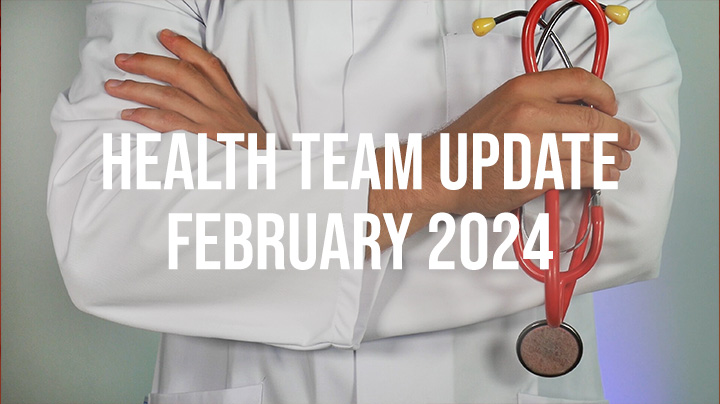COVID-19, RSV, and Flu
The Centers for Disease Control and Prevention (CDC) is considering loosening its recommendations regarding how long people should isolate after testing positive for the coronavirus. In general, Americans are advised to isolate for five days before returning to work or school and then to mask for an additional five days. Read the complete guidelines. Proposed but not yet implemented guidelines would mean that Americans might return to their routines if they have been fever-free for at least 24 hours without medication.
This standard applies to influenza (flu) and respiratory syncytial viruses (RSV). It’s important to note that the CDC last changed its policy on COVID isolation in 2021, and the science around COVID has not changed. In early February 2024, RSV was responsible for 0.1% of all U.S. deaths, flu 0.8%, and COVID – 3% (CDC Illness Severity Statistics).
With widespread testing programs no longer available for COVID and most folks relying on home testing, wastewater testing has become the most accurate detector of community COVID levels. Currently, wastewater levels of COVID are very high, indicating high levels of COVID transmission in most North Carolina counties. You can view the wastewater levels of COVID.
Every home in the U.S. is eligible to order four free at-home tests. If you did not order tests this fall, you may place two orders for eight tests. Your order of COVID tests is entirely free – you won’t even pay for shipping. Order them here. Please note that the federal government has extended the expiration dates on COVID-19 at-home tests.
Thankfully, RSV positivity rates appear to be trending down for the winter season, but flu and COVID-19 positivity rates remain high. You can protect yourself from the flu and COVID-19 by ensuring you have up-to-date yearly vaccines.
Most private insurance fully covers the cost of flu shots. Free shots are also available to non-Medicaid, uninsured pregnant women during flu season and receiving services at the health department.
The 2023–2024 updated COVID-19 vaccine from Pfizer-BioNTech, Moderna, or Novavax to protect against serious illness from COVID-19.
- Everyone aged five years and older should get one dose of an updated COVID-19 vaccine to protect against serious illness from COVID-19.
- Children aged six months–4 years need multiple doses of COVID-19 vaccines to be up to date, including at least 1 dose of updated COVID-19 vaccine.
- People who are moderately or severely immunocompromised may get additional doses of the updated COVID-19 vaccine. They are eligible for COVID-19 vaccines as frequently as every 2 months.
- Learn more here: COVID-19 – Stay Up-To-Date
- Find the COVID vaccine near you
Please note that NO changes have taken place yet to CDC COVID guidelines. The CDC continues to recommend isolating for at least five days after you test positive for Covid-19 while keeping a distance from other people in your household. This means staying home from school and work for about a week. If your symptoms are improving and you are fever-free for 24 hours without taking any fever-reducing medications like acetaminophen or ibuprofen, you can end isolation on day five. If your symptoms are not improving by day five, continue to isolate until you feel better, and your fever is gone. After ending isolation, you should continue to wear a high-quality mask, like an N95, around other people until at least 10 days after the positive test. You may stop wearing a mask earlier if you have two negative tests 48 hours apart.
You can better protect yourself from respiratory diseases like flu & COVID by wearing a mask and ventilating worship spaces. This is especially important for seniors, the immune-suppressed, and others at risk for COVID-19. You can also protect yourself from COVID-19 by getting a Paxlovid prescription if you contract COVID.

